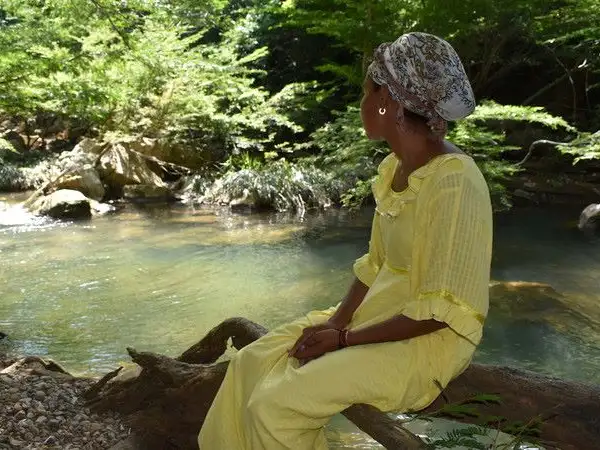


Indigenous women in La Guajira, Colombia, play a vital role in defending their land, livelihoods and water sources from large-scale mining.
Our world is enduring an interrelated social and environmental crisis: the impacts of coronavirus, and the climate and biodiversity crisis. Protecting environmental and human rights defenders is essential if we are to address the interconnected cry of the earth and the cry of the poor.
The uncomfortable reality
Human rights defenders (HRDs) help to keep governments and businesses in check, ensure that models of development put people ahead of profit, and protect our planet. Yet, for their work, they face criminalisation, harassment and violence – even death.
Our report, Protecting our common home: land and human rights defenders in Latin America, finds that states as well as businesses act with disregard for human rights and the environment. The COVID-19 pandemic has exacerbated the deep inequalities across the region, and has led to increased threats to and attacks on land and environmental HRDs and their communities. Much of this is intrinsically linked to access and control over land and territories. Against a backdrop of limited state presence, huge power asymmetries between companies, states and local communities, and widespread impunity, HRDs often have nowhere to turn to for protection.
Key findings of the report
The report, co-funded by the European Union as part of the project “Defending Land, Territory and the Environment: Promoting the work of human rights defenders in Latin America”, is based on research from 2019 to 2021 on the current trends of human rights abuses faced by land and environmental human rights defenders across six countries in Latin America: Bolivia, Brazil, Colombia, Guatemala, Honduras and Peru. It highlights six key issues facing land and environmental HRDs across the six countries and case studies included in the research. These issues are not isolated but form a pattern of abuse across the region, often affecting already under-represented groups – indigenous, Afro-descendant and campesino (small-farmer) communities, and women – the most.
Threats and attacks against HRDs are intrinsically linked to unequal control over and access to land and natural resources.
HRDs operate in a hostile environment in which civic space is restricted, with limited spaces for communities to contribute to decisions that affect them.
States are failing to protect HRDs from harm, against a backdrop of limited state presence, widespread corruption and impunity.
Stigmatisation and criminalisation are used by states as well as business to target HRDs - in contrast, perpetrators enjoy widespread impunity.
The COVID-19 pandemic has increased the risks faced by HRDs defending their rights and the environment. This includes the risks from corporate activity, as states prioritise extractive industries for economic recovery.
Corporate activity, underpinned by state economic models that strongly favour the expansion of large agribusinesses, mining and big infrastructure projects, is a key driver of attacks on these HRDs.
Strategies for change and recommendations
The report also shares learning on the different strategies and approaches being used by HRDs to push for change and resist human rights and environmental harm in their land and territories.
The report recognises that securing an enabling environment where HRDs can operate freely and safely is an important element of an open and well-functioning society and economy, and helps to promote equality, respect of human rights for all and the protection of the environment – care for our common home.
As this is the responsibility of all of us, the report recommends ways that the UK government, EU and member states, Latin American states, all governments, and businesses and investors can protect HRDs from the attacks they face, and to tackle the drivers of this abuse.
This report has been produced with the financial assistance of the European Union. The contents of this publication are the sole responsibility of CAFOD and the project and can under no circumstances be taken as reflecting the position of the European Union.
Resources


Protecting our common home: Land and environmental human rights defenders in Latin America (executive summary)

[Español] Proteger nuestra casa común: Defensoras y defensores de la tierra y del medioambiente en Latinoamérica

[Español] Proteger nuestra casa común: Defensoras y defensores de la tierra y del medioambiente en Latinoamérica (resumen ejecutivo)

[Português] Proteger nossa casa comum: Defensoras e defensores da terra e do meio ambiente na América Latina

[Português] Proteger nossa casa comum: Defensoras e defensores da terra e do meio ambiente na América Latina (sumário executivo)
CAFOD's policy team provides briefings, reports and research on our advocacy and lobbying work, plus materials to support our campaigns.
We're urging the government to introduce a new law that will hold UK companies to account when their activities lead to human rights and environmental abuses.


